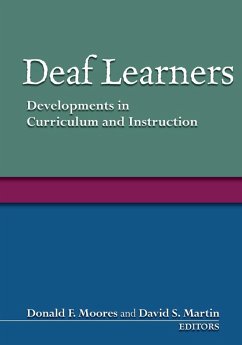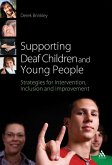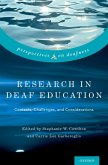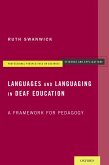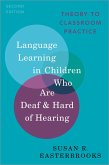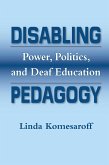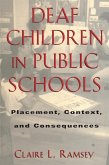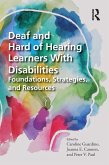This in-depth collection by 17 renowned international scholars that details a developmental framework to maximize academic success for deaf students from kindergarten through grade 12. Part One: The Context commences with an overview of the state of general education and that of deaf learners, followed by a state-of-the art philosophical position on the selection of curriculum. Part Two: The Content considers critical subjects for deaf learners and how to deliver them, including mathematics, print literacy, science, social studies, and physical education. This section also addresses the role of itinerant services, as well as how to teach Deaf culture, provide for students with multiple disabilities, and facilitate school-to-work transitions. Part Three: Instructional Considerations Across the Curriculum provides suggestions and guidelines for assessing and planning programs for deaf students using meaningful contexts; optimizing the academic performance of deaf students with emphasis on access and opportunities; implementing a cognitive strategy that encourages teaching for and about thinking as an overriding principle; establishing instructional and practical communication in the classroom, especially in relation to ASL and English-based signing; and solving old problems with new strategies, including Web-based technologies, resources, and applications. The lessons of these assembled scholars coalesce in the Part Four: Summary as a general recommendation for ongoing adaptability, a fitting capstone to this extraordinary volume of work.
Dieser Download kann aus rechtlichen Gründen nur mit Rechnungsadresse in A, B, BG, CY, CZ, D, DK, EW, E, FIN, F, GR, HR, H, IRL, I, LT, L, LR, M, NL, PL, P, R, S, SLO, SK ausgeliefert werden.

